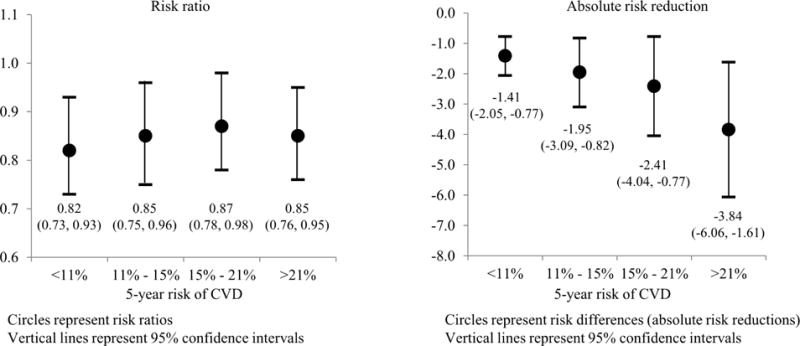Figure 1. Relative and Absolute Reduction in CVD Events with BP Reduction by 5-Year Risk of CVD.

This figure shows data from a pooled analysis of 11 randomized controlled trials of antihypertensive treatment versus placebo (N = 67,475 participants). Participants were grouped into strata on the basis of 5-year predicted risk for cardiovascular disease events. Left: The relative risk for having a cardiovascular disease event during follow-up is similar within strata of predicted cardiovascular disease risk, ranging from 0.82 to 0.87. Right: The absolute risk reduction associated with treatment versus placebo is progressively larger among participants with higher predicted cardiovascular disease risk. The larger absolute risk reduction among those with higher predicted risk means that antihypertensive treatment will reduce more events when treating high-versus low-risk people. Reprinted, with permission, from Blood Pressure Lowering Treatment Trialists’ Collaboration (89). BP = blood pressure; CVD = cardiovascular disease.
